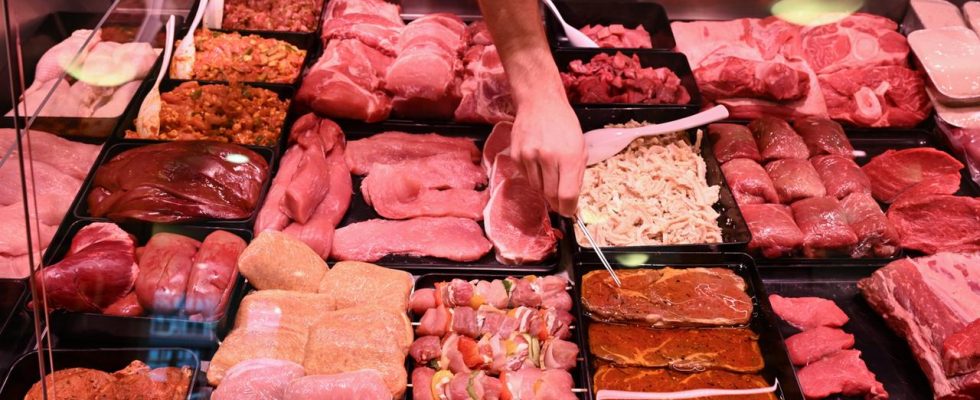Statistically, every person in Germany ate 51.6 kilograms of meat last year – less than ever since records began. Agriculture Minister Özdemir also sees this as an opportunity for agriculture.
According to the Ministry of Food, meat consumption in Germany continues to decline. Per capita consumption, which has been declining for years, continued to fall last year.
“Many people today eat less meat, but more consciously,” said the Federal Minister of Food and Agriculture, Cem Özdemir. Germans paid more attention to their health, the impact on the environment and the welfare of animals when it came to their diet.
According to preliminary information from the Federal Information Center for Agriculture (BZL), per capita meat consumption fell by 430 grams to 51.6 kilograms in 2023 compared to the previous year. This means it has reached the lowest value since recording began. Regarding the new low, Özdemir explained that all the figures indicate that the trend that has been going on for years is continuing.
We should take advantage of the new market opportunities. Keeping fewer animals better – that’s what it’s all about.
Decrease in beef and pork meat
According to the information, beef consumption fell by almost five percent to 8.9 kilograms per person, making it the most. The amount of pork consumed also fell by almost 600 grams to 27.5 kilograms per person. Poultry consumption, on the other hand, has increased: by around 900 grams to 13.1 kilograms per person.
Özdemir demanded that agriculture, together with trade and politics, should orientate itself on this reality in order to further develop animal husbandry in Germany in a future-proof manner. “Surveys regularly show that consumers want higher standards in animal husbandry and would also be willing to pay more money for them.”
It’s about keeping fewer animals better, said the Green politician. In addition, plant-based alternatives such as oat milk or vegetarian burgers could offer growing market potential for the domestic agriculture and food industry.
Union senses appropriation
The agricultural and food policy spokesman for the CDU/CSU parliamentary group, Albert Stegemann, sees it differently. He accused Özdemir of using the numbers to push back animal husbandry in Germany “with the political crowbar.” What’s more: “Now the long-term trend towards less meat has to be taken into account.”
Farmers have been adapting to changes in consumption for years, said the CDU politician. Özdemir should invest more in the competitiveness of animal husbandry in Germany. “Otherwise our regional animal husbandry will continue to migrate and we will have to import even more meat.”
Fewer imports and exports
Last is after Information from the Federal Statistical Office Both the import and export of meat also fell: from January to November 2023, 1.9 million tons of meat were imported and 2.4 million tons were exported. This means that Germany recently sold more meat abroad than it bought there. In terms of volume, imports fell by 4.3 percent and exports by 12.6 percent – but in terms of value, imports and exports increased.

